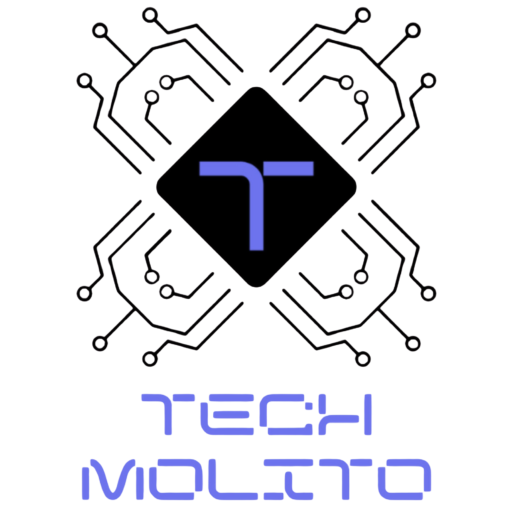You might have heard about blockchain with cryptocurrencies, but it’s more than that. It’s transforming how companies manage their supply chains. Imagine being able to track every product from start to finish, knowing it’s safe, real, and exactly where it should be. That’s what blockchain can do.
In this blog, we’ll explore work of blockchain for supply chains, why it’s important in 2024, and what you need to know. I’ll break everything down into simple terms, so you’ll have a clear understanding by the end. Ready? Let’s get started!
Blockchain technology powers more than just supply chain transparency; it also enables decentralized applications, or DApps, which provide secure, tamper-proof solutions across various industries. Learn more in our guide on What Are Decentralized Apps.
Supply Chains Are Complicated
Ever wonder how a product gets from a factory to a store shelf? It’s not simple. Products go through a series of steps before reaching customers. They move from factories to warehouses, then to trucks, and finally, to stores. Along the way, they pass through many hands.
But there’s a problem. The supply chain is often hard to track. Goods can get lost, stolen, or damaged. In fact, $1 trillion worth of goods were lost globally in 2024 due to issues in the supply chain. That’s a big problem.
Also, consumers today want to know where their products come from. They care about quality and safety. But with old tracking methods, it’s tough to give clear answers. Errors happen. Mistakes are made.
How These Problems Affect You
Think about it: You order a product online, expecting it to arrive safely. But what if it gets lost? What if it’s fake or broken? Or worse, what if it was made in unsafe conditions? That’s not just annoying; it’s a real concern.
For companies, these issues mean losing money, customers, and trust. If they can’t ensure the quality and safety of their products, people won’t want to buy them. Supply chain failures also lead to delays, which can cause serious problems. For example, in 2024, global supply chain delays cost companies over $500 billion. That’s a lot of money wasted!
These problems affect us all. Without reliable tracking, consumers don’t get what they paid for. And companies lose time, money, and trust.
Blockchain for Supply Chain Management
Here’s where blockchain comes in. Blockchain is like a digital ledger that records information in a way that’s nearly impossible to change. It keeps track of data across a series of blocks that are linked together. Once something is added, it can’t be deleted or changed without everyone seeing it.
Blockchain makes supply chains more clear, safe, and easy to manage. It keeps a record of every step, so firms always know where their products are. This builds a system where tracking is simple and reliable. The data stays safe with encryption, making it almost impossible for anyone to change. This strong layer of safety helps firms trust the information they store.
Blockchain also brings accountability. If anything goes wrong in the chain, it’s easy to trace the issue to its source. Every action is logged, creating a clear record for firms to check. This saves time and makes solving problems faster.

Benefits of Blockchain in Supply Chains
In 2024, many companies are turning to blockchain to solve their supply chain problems. Here’s why:
- Real-Time Tracking: Companies can follow products from start to finish.
- Faster Delivery: Blockchain helps reduce delays by spotting problems early.
- Less Fraud: It’s much harder to create fake products when everything is tracked.
- Better Transparency: Consumers get proof that their products are safe and real.
- Lower Costs: By reducing errors, blockchain can save companies money.
How Blockchain Works in the Supply Chain
Blockchain helps track products from start to finish. When a product is made, key details like what it’s made of and where it was built get recorded. Each time the product moves, the system updates the record. This ensures the process stays smooth.
If questions arise about safety or quality, firms can check the blockchain to confirm details. It’s like having a lasting receipt everyone can access. When the product reaches the final stop, the system confirms it is the right item and safely delivered. This makes it easier to catch and fix any problems along the way.
Blockchain Advancements
What’s new with blockchain and supply chain management in 2024? A lot! Here are the latest trends you should know:
AI and Blockchain
Artificial Intelligence (AI) is now used with blockchain to improve tracking even further. AI can predict delays before they happen and help companies make faster decisions.
Blockchain for Sustainability
More companies are using blockchain to track their products’ environmental impact. This is helping reduce waste and ensure that products are made sustainably.
Cross-Border Blockchain
Blockchain is now being used to speed up global shipping by simplifying customs and trade rules. This helps companies move goods across borders faster and with fewer errors.
These advancements are helping companies improve their supply chains while making them more reliable for consumers.
Benefits and Challenges of Blockchain
Blockchain gives firms key benefits like real-time tracking. Firms can always see where products are, which helps them plan better. It also builds trust by showing customers that goods are real and not fake. Blockchain keeps fraud low by recording every step, stopping fake products from sneaking into the chain.
Though blockchain offers great tools, it can be tough to set up. Costs are high, and staff need time to learn new skills. Firms must also make sure old systems work well with blockchain. Even though these challenges exist, many firms believe the benefits make it worth the effort.
How Blockchain Improves Supply Chain Transparency
Blockchain makes supply chains clear for all. Everyone in the chain can see the same data, making it easy to spot problems early. Once data is entered, it stays the same unless all parties know. This keeps records true and blocks fraud.
It also shows the full path of a product, from start to finish. Firms and buyers can follow every step to see where the product has been. This builds trust and ensures safety. Firms can prove their goods meet standards, and buyers know exactly what they are getting.
FAQs
1. What is blockchain in supply chain management?
Blockchain is a digital record that tracks every step in the supply chain, ensuring transparency, safety, and accuracy.
2. How does blockchain reduce supply chain delays?
Blockchain helps spot problems early and improves coordination, reducing delays.
3. Can blockchain help stop counterfeit products?
Yes, blockchain makes it harder for fake products to enter the supply chain by recording and verifying every transaction.
4. Is blockchain expensive for supply chain management?
While there are upfront costs, the savings from fewer errors and faster deliveries can make it worth the investment.
Conclusion
In 2024, blockchain is revolutionizing supply chain management. From real-time tracking to stopping fraud, it’s making the supply chain more secure and reliable for both businesses and consumers. Blockchain ensures that products are real, safe, and delivered on time.
As businesses adopt blockchain, the way products move through the supply chain will only get better. The problems of the past, like lost goods and delays, are being solved with this new technology.





